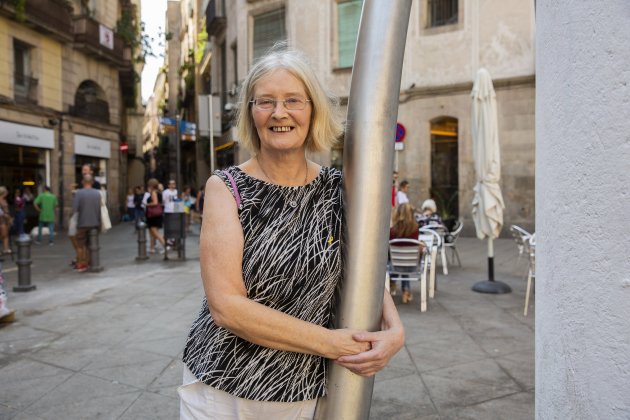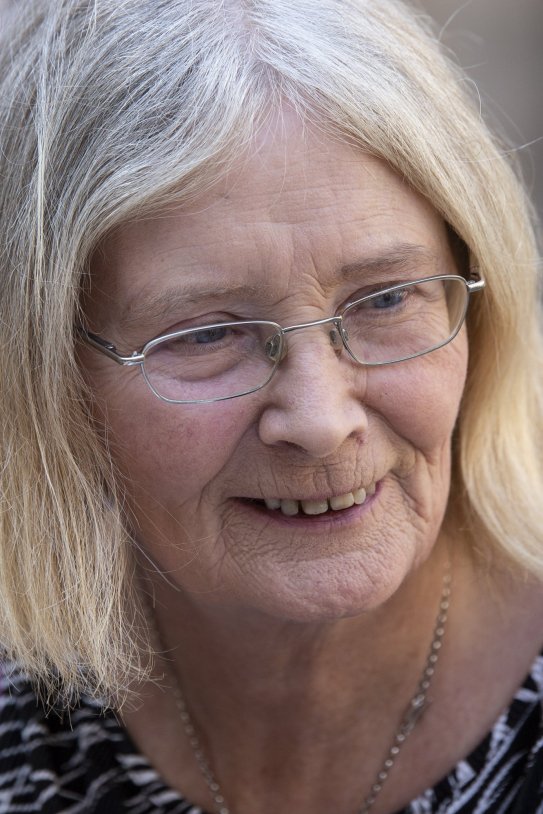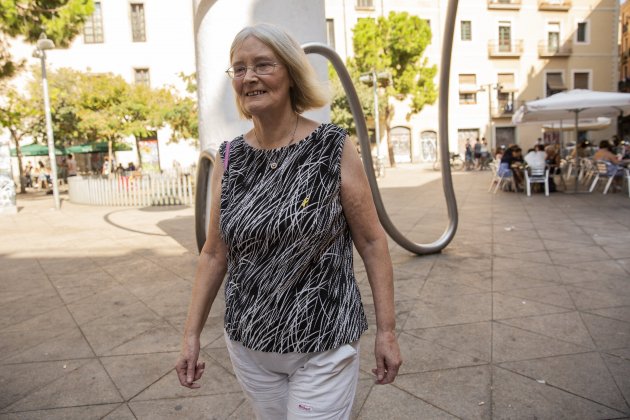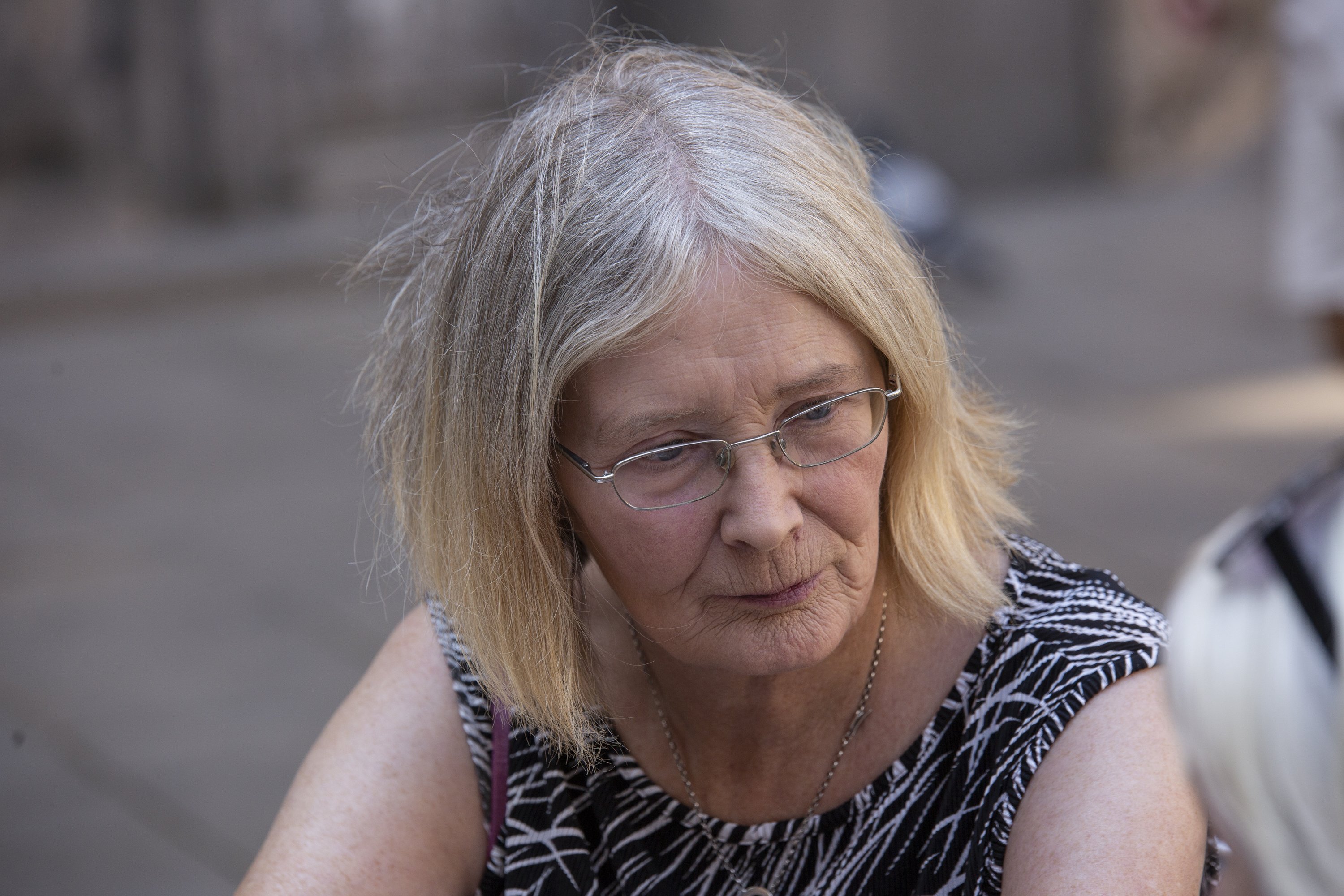Tricia Marwick (Cowdenbeath, Scotland, 1953) is the Scottish equivalent of Carme Forcadell. That is, she was speaker of the Scottish Parliament when, on 18th September 2014, the country held its independence referendum. But last year, she experienced another self-determination vote, that of Catalonia. She was one of about a hundred observers of Catalonia's 1st October referendum invited by the International Commission of European Citizens (ICEC). A year later, she has returned to Barcelona, this time with Catalan political prisoners and exiled leaders as part of the panorama in the Spanish state. As a believer in Europe, she believes that the EU institutions should mediate in the conflict.

What do you remember of that day?
I was one of the international visitors, together with my friend Sandra White, an MP in the Scottish Parliament. We were at Barcelona schools all day long. I remember the mayhem around us. We saw the people inside, but also outside the schools. We were worried that we might be attacked...
Have you ever seen a vote under these conditions?
I have never been a witness to anything like this in over 50 years of involvement in politics. I have never seen people so terrified, but so determined, as that day.
What did you think at the end of that day?
I was the speaker of the Scottish Parliament during Scotland's independence referendum in 2014. That is the democratic way. But this was not what the Spanish government allowed...
Can you imagine those scenes in Scotland?
I cannot. It was something that a person like me, who has taken part in democratic election campaigns for more than thirty years, couldn't expect. I was truly shocked. And I was also surprised by the Catalan people's determination to vote.
After the referendum, you spoke about the "ghost of Franco".
There were some elements that reminded me of the Franco era. It seems to me that some of the excesses of the Franco regime are still present today.
How do you see the situation one year afterwards?
The most striking reality is that of the people who have been in prison for almost a year without trial, and without any evidence that they have committed violent acts. And also the exiles. In Scotland, we have Clara Ponsatí. They can't go home. As a former speaker of the Scottish Parliament, what calls my attention most is the imprisonment of Carme Forcadell.

Carme Forcadell is in prison for doing made what any parliamentary speaker would do
She is imprisoned for doing the same as you did...
She is imprisoned for doing what any parliamentary speaker would do. It is a duty of speakers to allow debate in their parliaments. This is what Carme Forcadell did. And it is because of that that she has been imprisoned. As a democrat, it infuriates me that somebody has been jailed for having allowed the expression of democracy in a parliament.
For you, are they political prisoners?
They are political prisoners and political exiles. Yes, they are.
Is it possible to have political prisoners and exiles in modern Europe?
It has to do with a lack of concern from the European institutions. As a European, I believe that the European institutions should say that what is happening is unacceptable. The sensation is that there is no separation of powers between the judiciary and the Spanish government. I have not seen any evidence that the Spanish judiciary is acting in a way different to the Spanish government.
Do you believe, then, that they won't have a fair trial?
If you look at the judicial process, the single fact that they have been imprisoned for supposed incidents which all evidence shows that they did not commit... It is difficult to see that the judicial process will offer anything more than a trial that seems designed to find them guilty. There is nothing that makes me think they will have a fair trial. It has also been shown up when Puigdemont and the exiled ministers have sought justice outside Spain.
You campaigned against Brexit. Today have you changed your vision of the European Union?
I still believe in the European Union. I still believe that it is the best tool to work together and give guarantees to the people.
It is difficult to see that the judicial process will offer anything more than a trial that seems designed to find them guilty

Why this silence from the European Union?
The European Union is formed by its member states, and the member states are the ones who determine what the response will be. And these states have decided that the situation in Catalonia is an internal affair of Spain's, and will not get involved in it. But they are making a mistake, because everyone who lives in Catalonia is also a citizen of the European Union. And the European Union has to defend the rights of all its citizens, independently of what the member states want.
Is the future of the EU in play?
The European Union is subjected to many pressures at the moment. There is the pressure of the United Kingdom which has voted to leave, but also the situation in Hungary which is being questioned by the community institutions. The European Union has to recognize the pressures that are coming in different directions. Its future is in play.
What is required for the solution now?
The same as what was required at the beginning: the Catalan and Spanish governments need to talk. It requires a commitment from both sides, but the deadlock has to be broken. The Catalans have to be able to express themselves in a legal referendum, which is recognized by both parties. Perhaps there is not enough with bilateral dialogue...
Is international mediation necessary?
The European Union has a role and has to find a way to mediate. The European Union has to be involved in the solution. If it is not the European Union, than another institution. The most important thing here is that the people of Catalonia have the right to decide their future, whatever that may be.
Do you believe that the new Spanish government can help to solve the problem?
At the moment, the positions are so polarized that it is difficult to find a way to resolve the conflict. It is because of that that I say that the European Union should come and act as mediator. It has already played an outstanding role in Northern Ireland.
A lesson to learn from Scotland?
The Spanish government has to know that denying the expression of democracy is not healthy. It could take the example of David Cameron, who when he was prime minister reached an agreement with the Scottish government to hold a referendum agreed on by both sides. This is the lesson. You cannot constantly say 'no' to the people who want their voice to be heard.

